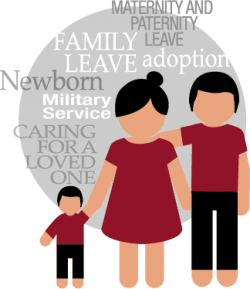Must employers provide paid leave under the Families First Coronavirus Response Act (“FFCRA”) to employees caring for their children attending school remotely due to COVID-19? The answer depends on the particular facts.
On August 27, 2020, the U.S. Department of Labor (“DOL”) updated its FFCRA guidance and “Questions and Answers” in an FAQ, addressing some “Return-to-School” issues which may be helpful to nonprofit organizations and businesses covered by the FFCRA.
As set forth more fully in the FAQ, the DOL stated that if the school of an employee’s child only allows for remote learning and an employee is unable to work—including telework—because they do not have another person to care for their child due to COVID-19-related reasons, that employee may be eligible for FFCRA expanded paid family leave. If, however, an employee chooses to have their child attend school remotely 100% of the time even when there is an option for “in-person” or “hybrid” learning, then an employer is not obligated to pay for that employee’s leave in order to provide childcare.
By way of background, the FFCRA is a law which requires covered employers to provide job-protected paid sick leave and extended paid family and medical leave due to COVID-19 to employees of employers with fewer than 500 employees (unless those employers qualify for and have sought a small business exception). The FFRCA took effect on April 1st and remains in effect through December 31, 2020.
If Congress does not extend the end date of the FFCRA past December 31st, then employers will need to consider how or if they will allow employees to continue to take paid (or unpaid) leave to address parents’ ongoing need to care for children continuing remote school past December 31st.
Organizations and businesses should keep in mind that State and local anti-discrimination laws, including recently passed COVID-19 specific laws, may offer job protection to employees out on leave due to COVID-19 to care for their children.
Employers should also be mindful that some State and/or local jurisdictions prohibit discrimination against employees because of an employee’s caregiver status or obligations.
What Should Employers Do Now?
- Review and update employee policies as needed regarding paid leave and the interplay between federal, State and local laws relating to paid or unpaid sick, family leave, other leaves of absence and COVID-19. Consider now how paid sick and family leave policies will need to be modified depending on whether FFCRA is extended beyond December 31, 2020, and ways in which your organization can support its employees in order to retain them.
- Train managers on their legal obligations with respect to the various COVID-19- and other paid leave-related laws at issue and ensure that managers are not treating caregivers less favorably than others seeking to take leave for other reasons (as certain jurisdictions have laws prohibiting discrimination based on caregiver status).
- Confer with employment counsel before deciding not to provide a leave of absence to an employee due to a care-giving need.
-
Perlman & Perlmanhttps://www.staging-perlmanandperlman.com/author/nancyisrael/
-
Perlman & Perlmanhttps://www.staging-perlmanandperlman.com/author/nancyisrael/
-
Perlman & Perlmanhttps://www.staging-perlmanandperlman.com/author/nancyisrael/
-
Perlman & Perlmanhttps://www.staging-perlmanandperlman.com/author/nancyisrael/











